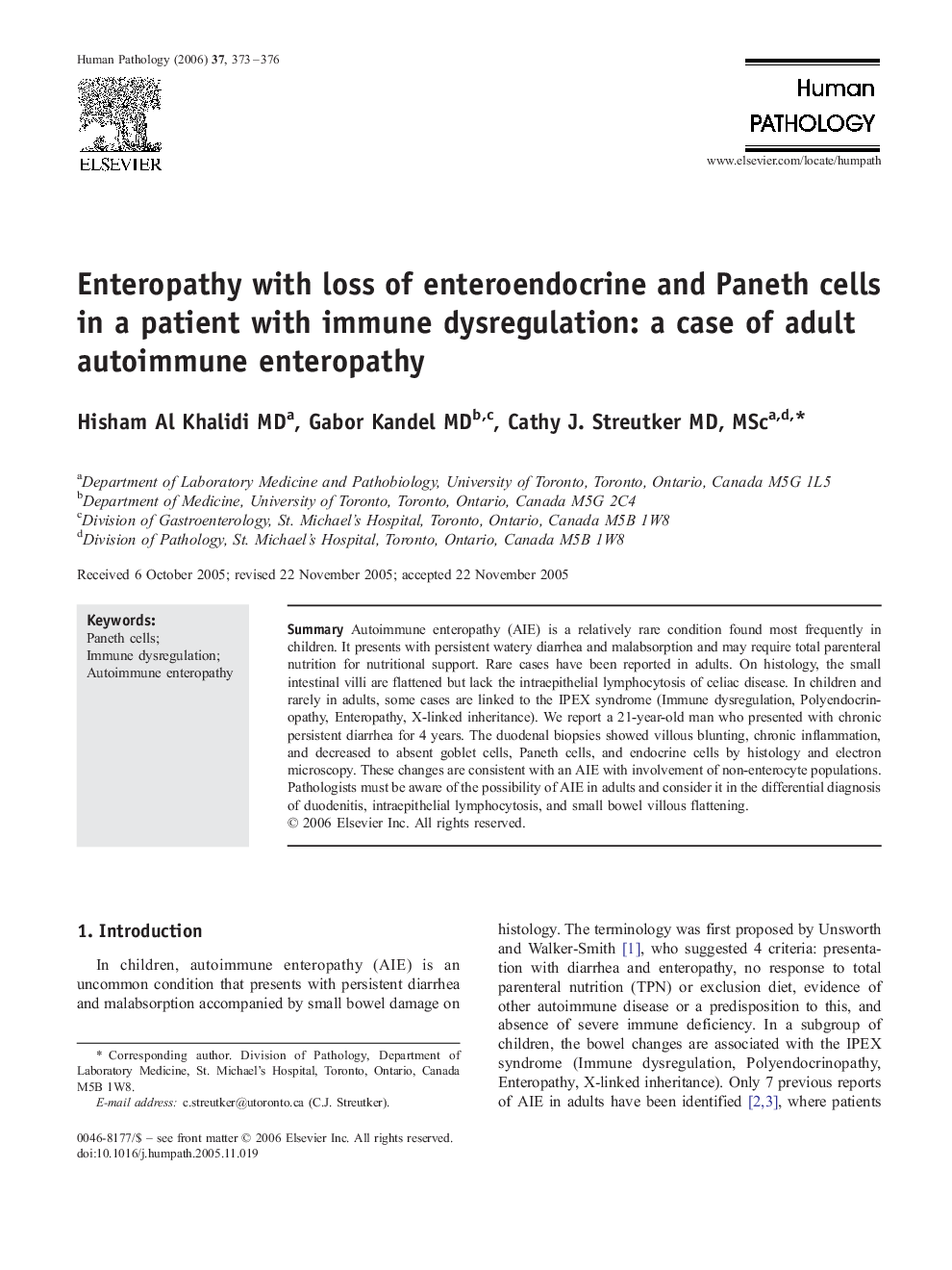| Article ID | Journal | Published Year | Pages | File Type |
|---|---|---|---|---|
| 4135735 | Human Pathology | 2006 | 4 Pages |
SummaryAutoimmune enteropathy (AIE) is a relatively rare condition found most frequently in children. It presents with persistent watery diarrhea and malabsorption and may require total parenteral nutrition for nutritional support. Rare cases have been reported in adults. On histology, the small intestinal villi are flattened but lack the intraepithelial lymphocytosis of celiac disease. In children and rarely in adults, some cases are linked to the IPEX syndrome (Immune dysregulation, Polyendocrinopathy, Enteropathy, X-linked inheritance). We report a 21-year-old man who presented with chronic persistent diarrhea for 4 years. The duodenal biopsies showed villous blunting, chronic inflammation, and decreased to absent goblet cells, Paneth cells, and endocrine cells by histology and electron microscopy. These changes are consistent with an AIE with involvement of non-enterocyte populations. Pathologists must be aware of the possibility of AIE in adults and consider it in the differential diagnosis of duodenitis, intraepithelial lymphocytosis, and small bowel villous flattening.
